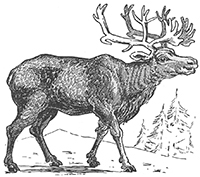Blow John
1648-1708
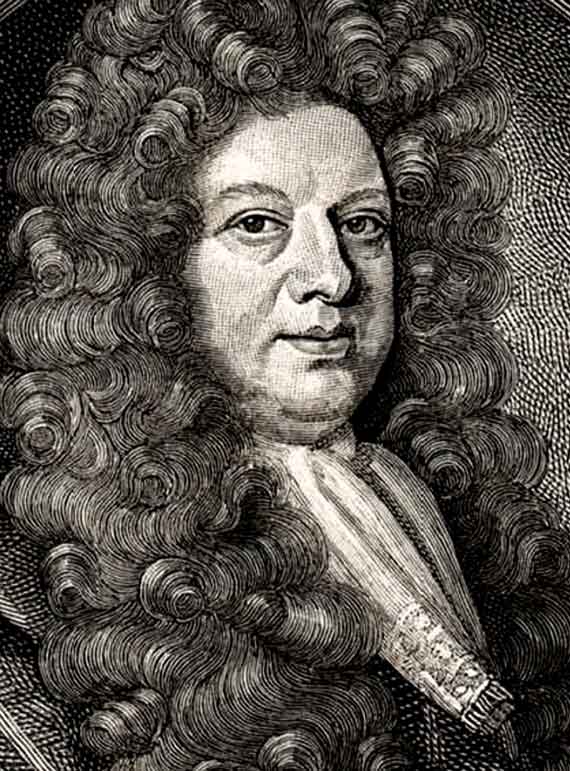
Baptisé le 23 février 1648 ou 1649 à Newark (Notts), mort à Londres le 1er octobre 1708.
Compositeur et organiste.
Il accomplit ses études musicales à la chapelle royale sous la direction d'Henry Cooke (1616-1672), après la Restauration et le rétablissement de la chapelle, à la mort de Cromwell en 1658 et au retour d'exil du roi Charles II.
De 1668 à 1679, il est organiste de Westminster Abbey, en remplacement de Albertus Brynne.
En 1669, il est attaché à la cour, puis est nommé virginaliste. En 1674, il est « gentleman », et maître des enfants de la chapelle royale.
Il est compositeur ordinaire de la cour pour la musique vocale.
John Blow, « I was glad », Anthem (pour la consécration de la chancellerie de la cathédrale Saint-Paul), 1697.En 1674, il reçoit le titre de docteur en musique de l'archevêque de Canterbury.
En 1676, il est organiste de la chapelle royale (charge partagée à partir de 1682 avec Purcell).
En 1679, laisse son poste d'organiste de Westminster à Henry Purcell.
En 1682-1685, il compose Venus and Adonis, la seule œuvre qu'il a composée pour la scène, à la demande de Charles II, qui a peut-être servi de modèle à Dido and Aeneas de Purcell.
John Blow, Venus and Adonis. Dunedin Consort (John Butt), Mhairi Lawson, Claire Evans, Rachel Redmond (sopranos), Clare Wilkinson (mezzo-soprano), James Hall (altop), Nicolas Mulroy, David Lee ténors), Matthew Brook, Jim Holliday (basses). Enregistré le 2 septembre 2015, Festival Oude Muziek Utrecht.De 1687 à 1703, il est maître de chapelle de la cathédrale Saint-Paul, et en 1696 de nouveau organiste à Westminster Abbey après la mort de Purcell (Ode on the Death of Mr. Henry Purcell).
John Blow, An Ode on the Death of Mr. Henry Purcell, Late Servant to his Majesty, and Organist of the Chapel Royal, and of St.Peter's Westminster: the words by Mr. Dryden; and sett to musick by Dr. Blow. Robin Blaze (contreténor), Jason Darnell (ténor) Yorkshire Baroque Soloists sous le direction de Peter Seymour. Leipzig, Bach Festival, juin 2007En 1699, il est premier compositeur de la chapelle royale.
Comme élèves, il eut Henry Purcell (1659-1695), Jeremiah Clarke (vers 1674-1707), William Croft (1678-1727).
John Blow est le maître et l'ami d'Henry Purcell, à la mémoire duquel il a composé en 1696, une de ses œuvres les plus sensibles, Ode on the Death of Mr. Henry Purcell.
Il laisse un important catalogue d'œuvres, un nombre d'entre elles somptueuses, liées à ses importantes charges civiles et religieuses.
Voir : Michel Rusquet, John Blow, dans « trois siècles de musique instrumentale », musicologie.org.
Écrits relatifs à la musique
Rules for playing the thorough bass upon organ and hapsicord
- Ms. Add. 34 072. Londres, British Museum
- Dans Franck Thomas Arnold, « The Art of accompaniement », Londres 1931 et Londres, Holland Press 1961
Doctor Blow's rules of composition (manuscrit)
- Ms. Add. 30 933. Londres, British Museum
Catalogue des œuvres
- Une quinzaine de messes et petites messes
- Une trentaine de pièces pour orgue
- Une quinzaine de psaumes avec orgue ou clavecin, pour la chapelle ou l'église
- Environ 80 pièces pour le clavecin
- Sonate en la majeur, pour 2 violons et basse continue.
- Ground en solmineur, pour 2 violons et basse continue
- Chaconne en sol majeur, pour 2 violons et basse continue
- Musique dramatique
- Venus and Adonis, masque pour le divertissement du roi, vers 1683.
Chansons perpetuelles (catches)
- Although Jolly Tom, à 3 voix 1685 (parfois attribué à Aldrich).
- Come hear me, my boy, à 3 voix, 1702 (attribution incertaine)
- Come, here's a good health to Prince Lewis, sur un poème de G. Herbert, (bataille d'Heilbronn), 1701, à 3 voix.
- Fie, I prithee, John, à 3 voix.
- God preserve His Majesty (pour la santé du roi), à 3 voix
- Here are [is] the rarities [rarity] of the whole fair, à 4 voix.
- How shall we speak thy praise, delicious bowl? à 3 voix, 1686
- I knew [know], brother tar (bataille de la Hougue), 1692, à 3 voix.
- I'll tell my mother, my Jenny cries, à 3 voix.
- In a cellar in [at] Sodom (D'Urfey), à 3 voix, 1701.
- Joan has been galloping, à 3 voix.
- Joan, Joan, for your part, à 3 voix.
- John asked his landlady, sur un poème de John the Miller.
- Ring the bells, and the glasses pull away, on the king's return from Flanders, 1701, à 3 voix.
- Uds nigs! here ligs [lies] John Degs, à 3 voix.
- We've rais'd an army, à 4 voix.
Odes pour la cour
- Dread sir, the prince of light (pour le nouvel an), 1678, alto, ténor, basse, chœur mixte, 2 violons, basse continue.
- The birth of Jove (anniversaire du roi), 1678, soprano, alto, ténor, basse, chœur mixte, 2 violons, basse continue.
- Great Janus (pour le nouvel an), 1679, soprano, soprano, alto, ténor, basse, 2 violons, basse continue.
- The new year is begun (pour le nouvel an), 1680, alto, ténor, basse, chœur mixte.
- Great Sir, the joy of all our hearts (pour le nouvel an), 1681, alto, ténor, basse, chœur mixte, 2 violons, basse continue.
- Up, shepherds, up (Anniversaire du roi), 1681, ténor, basse, basse, chœur mixte, basse continue.
- Arise, great monarch, sur un poème de J. Allestry (pour le nouvel an), 1682, soprano, soprano, alto, alto, ténor, basse, chœur mixte, 2 violons, basse continue.
- Dread Sir, Father Janus (pour le nouvel an), 1683, soprano, alto, alto, ténor, basse, chœur mixte, 2 violons, basse continue.
- My trembling song, awake, sur un poème de T. Flatman (pour le nouvel an), 1684, soprano, alto, ténor, basse, chœur mixte, 2 violons, basse continue.
- How does the new-born infant year (pour le nouvel an), 1685, soprano, alto, ténor, basse, chœur mixte, 2 violons, basse continue.
- Hail monarch, sprung of race divine (pour le nouvel an), 1686, alto, ténor, basse, chœur mixte, 2 violons, basse continue.
- Is it a dreame (pour le nouvel an), 1687, alto, ténor, basse, chœur mixte, 2 violons, basse continue.
- Ye sons of Phoebus (pour le nouvel an), 1688, alto; alto, ténor, basse, 2 flûtes à bec, 2 violons, basse continue.
- With cheerful hearts, sur un poème de T. Shadwell (pour le nouvel an), 1690, soprano, soprano, ténor, basse, basse, chœur mixte, 2 flûtes à bec, 2 violons, 2 altso, basse continue.
- Behold, how all the stars give way, sur un poème de T. D'Urfey (pour le nouvel an), 1692 (musique perdue).
- Welcome, welcome, genial day (Anniversaire du roi), 1692, soprano, soprano, basse, chœur mixte, trompette, hautbois,n 2 violons, basse continue.
- The happy, happy year is born, sur un poème de N. Tate (pour le nouvel an), 1693, Alto, alto, ténor, basse, chœur mixte, 2 violons, basse continue.
- Sound, sound the trumpet, sur un poème de P. Motteux (pour le nouvel an), 1694, alto, ténor, chœur mixte, 2 violons, basse continue.
- Hail, thou infant year (pour le nouvel an) vers 1697, soprano, soprano, alto, alto, basse, chœur soprano, alto, alto, basse, 2 violons, basse continue
- The nymphs of the wells (anniversaire du duc de Gloucester), 1697, soprano, soprano, alto, ténor, basse, 2 violons, basse continue.
- Music now thy charms display, sur un poème de N. Tate (pour le nouvel an), 1698 (musique perdue).
- Welcome, welcome, happy day, sur un poème de N. Tate) (Anniversaire du roi), vers 699.
- Appear in all thy pomp, sur un poème de N. Tate, (pour le nouvel an), 1700, alto, ténor, basse, chœur mixte, 2 violons, basse continue.
- Come, bring the song (anniversaire de la princesse Anne), 1700, soprano, alto, ténor, basse, chœur mixte, trompêtte, 2 violons, basse continue.
- Welcome, welcome, glorious day (anniversaire de la princesse Anne), vers 1701, soprano, basse, chœur mixte, trompette, timbale, 2 violons, basse continue (avec Purcell).
- Whilst he abroad likes the sun, song, Ye great defenders of the faith, chorus, (pour le nouvel an), 691 (perdu)
Odes pour diverses occasions
- Awake, awake, my lyre, sur un poème d'A. Cowley (traité d'Oxforfd), avant 1678, soprano, basse, choeur, 2 violons, basse continue.
- Diva quo tendis (traité d”Oxford), 1678–1679, soprano, soprano, alto, ténor, basse, chœur mixte, 2 violons, basse continue.
- Begin the song, sur un poème de J. Oldham (pour la Sainte-Cécile), 1684, soprano, alto, ténor, basse, chœur mixte, 2 violons, basse continue.
- The glorious day is come (pour la Sainte-Cécile), 1691, soprano, alto, ténor, basse, chœur mixte, 2 trompettes, timbale, 2 hautbois, 2 flûtes à bec, 2 violons, basse continue.
- Dum pulsa strident timpana, avec le choeur final de « Non arma regum, (trqité d'Oxford), vers 1695, soprano, soprano, alto, ténor, basse, double chœur mixte, 2 violons, violoncelle, basse continue.
- Great quire of heaven (pour la Sainte-Cécile, 1695, soprano, soprano, alto, alto, ténor, basse, 2 trompettes, 2 hautbois, 2 flûtes à bec, 2 violons, basse continue.
- Non arma regum (traité d'Oxford), vers 1695, soprano, soprano, ténor, basse, basse, double chœur mixte.
- Bring, shepherds bring the kids (pur un mariage ?), vers 1695–1700, alto, basse, chœur mixte, 2 trompettes, 2 flûtes à bec, 2 violons, basse continue.
- Welcome, welcome, every guest (pour une fête musicale), vers 1695–1700, ténor, basse, chœur mixte, 2 trompettes, 2 flûtes à bec, 2 violons, basse continue.
- Triumphant fame (pour la Sainte-Cécile), 1700, soprano, soprano, alto, ténor, basse, chœur mixte, 2 trompettes, 2 flûtes à bec 2 violons, basse continue.
Chants de dévotion
- All things are hush'd, pour voix soliste.
- And art thou griev'd, sweet and sacred Dove? sur un poème de G. Herbert), pour voix soliste, 1688.
- Arise, my darken'd melancholy soul, pour voix soliste.
- As on Euphrates' shady banks, à 3 voix.
- A winged harbinger, à 4 voix.
- Bless, mortals, bless the cheering light, pour voix soliste, 1683
- Enough, my muse, of earthly things, à 2 voix, 1688.
- Hark how the wakeful cheerful cock, à 2 voix (en collaboramtion avec Humfrey).
- Hear God's almighty voice, pour voix soliste.
- Help, Father Abram, pour voix soliste, 1688.
- How art thou fall'n from heav'n, O Lucifer, à 2 voix, 1688.
- O mighty God, who sitt'st on high, pour voix soliste, 1693.
- O that mine eyes would melt into a flood, pour voix soliste, 1688.
- O thou that didst create the light, pour voix soliste.
- Peaceful is he, and most secure, sur un poème de T. Flatman, pour voix soliste. 1688.
- The Angel Gabriel always kind, pour voix soliste.
- To God I make my prayer, pour voix soliste.
Chansons profanes
- Ah me! Undone.
- Alexis, dear Alexis, à 2 voix.T. Flatman, 1684.
- All my past life, sur « The True Constancy; » de Joghn Wilmot, 2e comte de Rochester, 1685.
- Amintor on a riverside, 1683.
- And is my cavalier return'd?, avec 2 flûtes à bec.
- As Celadon and Chloris, 1679.
- Ask not the cause why sullen spring, sur un poème de J. Dryden, 1699.
- As on his deathbed gasping Strephon lay, élégie sur le comte de Rochester, de T. Flatman), 1681.
- As [Whilst] on Septimius' panting breast, sur un poème d'A. Cowley, 2 vois, 2 violons, basse continue, 1685.
- At looser hours in the shade, sur un poème de Horace to his lute).
- Boasting fops who court the fair, à 2 voix.
- Born with the vices of my kind, à 2 voix, 1689.
- Bring my mistress, 1689.
- Chloe found Amintas, à 2 voix, 1695.
- Church scruples and jars, à 2 voix.D'Urfey.
- Clarinda's heart is still the same.
- Clarona, lay aside your luth
- Come fill the glass, à 2 voix.
- Come, poetry, and with you bring along, à 3 voix, 1688.
- Could softening, melting looks prevail, 1687.
- Draw out the minutes twice as long, 1683.
- Employ'd all the day still in public affairs, (pour la société de musique, à 2 voix.
- Euridice, my fair, sur un poème de Flatman, à 2 voix, 1688.
- Fain would I, Chloris, ere I die, 1683.
- Fairest work of happy nature, 1689.
- Fair lady, so strong are the charms, 1678.
- Fair nymph, that to the wanton winds, à 3 voix.
- Farewell, my useless scrip, 1699.
- Fill me a bowl, a mighty bowl, sur un poème de J. Oldham, 1687.
- For honour and glory the soldier prepares, 1691.
- Go, perjur'd maid, à 2 voix.
- Go, perjur'd man, sur un poème de R. Herrick, à 2 voix., 2 violons, basse continue, 1683.
- Grant me, ye gods, the life I love, sur un poème de Cowley, 1688.
- Great Queen of Love, behold, à 3 voix.
- Happy the man who, languishing (Sappho to the Goddess of Beauty)
- How I have serv'd, sur un poème du Colonel Salisbury, with un chœur à 3, 1687.
- If I live to be old, sur un poème de W. Pope, 1685.
- If I my Celia could persuade, sur un poème de G. Etherege, à 2 voix.
- If mighty wealth, 1686.
- I little thought, sur un poème de Cowle), 1687.
- I'll tell thee, my Celia, 1681.
- Illustrious day, what glory canst thou boast (pour l'anniversaire de la reine)
- In Caesar all the joint perfections meet.
- In vain, brisk God of Love, à 2 voix., 1683.
- It grieves me when I see what fate, avec violon.
- It is not that I love you less, « The Self-Banish'd » d'E. Waller).
- Lately on yonder swelling bush, sur « The Bud de Waller, à 2 voix.
- Leave to him all our cares, 1687.
- Let equipage and dress despair, 1683.
- Let us drink to the well-wishers, à 2 voix., 1685.
- Long by disdain has Celia strove, sur un poème de Ousley, à 2 voix, chanté dans « The Lucky Chance » de A. Behn), 1687, 1685.
- Lovely Selina, chanté dans « The Princess of Cleve » de N. Lee, 1689, 1683.
- Lysander, I pursue in vain, sur un poème de A Mad Song.
- Mark how the lark and linnet sing, sur un poème de Dryden, à 2 voix.
- Mighty Sir, 'tis you alone (anniversaire du roi).
- Morpheus, the humble god, sur un poème de J. Denham, à 2 voix.
- No, Lesbia, no, you ask in vain, 1695.
- No, Lucinda, I swear, à 3 voix.
- No more the dear, the lovely nymph, sur un poème de Motteux).
- Of all the torments.
- O love, that stronger art than wine, chanté dans « The Lucky Chance » de Behn, 1687, 1687.
- O Nigrocella, « Fair Lover and His Black Mistress dce G. Herbert), 1691.
- Orethea's bright eyes, à 2 voix.
- O turn not those fine eyes away
- O Venus, daughter of the mighty Jove (Sappho to the Goddess of Love)
- Philander, do not think of arms, 1699.
- Phyllis, accept a broken heart, 1683.
- Phyllis, I must needs confess, 1687.
- Pleasures by angels unenjoy'd, 1685.
- Poor Celadon, he sighs in vain (Loving Above Himself), avec 2 violons et basse continue.
- Poor Mariana long in vain.
- Prithee die, and set me free, sur « Kellsea Coom » de J. Denham, à 2 voix.
- Return, fair princess of the blooming year, 1687.
- Sabina has a thousand charms.
- Shall all the buds, à 2 voix, chœur.
- She, alas, whom all admir'd, is dead, 1687.
- Shepherds, deck your crooks, à 3 voix,
- Shot from Orinda's brighter eyes, 1685.
- Since the Spring comes on, 1687.
- Stay, gentle Echo, à 2 voix..
- Strife, hurry, and noise, 1685.
- Stubborn church division, sur un poème de D'Urfey.
- Tell me no more you love.
- Tell my Strephon that I die, chanté dans « The Loyal General », deN. Tate, 1680, 1683.
- The great Augustus like the glorius sur, sur un poème de D'Urfey), avec chœur à deux voix, chanté dans « The Royalist », de D'Urfey), 1682, 1683.
- The world was hush'd, sur un poème de D'Urfey, 1691.
- Thou flask once fill'd with glorious red, chanté dans « The Committee » de R. Howard), 1697.
- Though the [our] town be destroy'd, sur un poème de D'Urfey, 1688.
- Tired with destroying.
- 'Tis not my lady's face, sur un poème de A. Brome, 1679.
- To me you [y'ave] made a thousand vows, à 2 voix., chanté dans « The Rival Sisters » de R. Gould), 1696.
- Vain are thy charms, fair creature, 1686.
- We all to conqu'ring beauty bow, sur « The Perfection » de D'Urfey, 1685.
- Weep, all ye nymphs, chanté dans « The Princess of Cleve » de Lee, 1689, 1685.
- What is't to us who guides the state? Chanté dans « The History of Adolphus » de C. Howe, 1691.
- When artists hit on lucky thoughts, à 2 voix.
- Whence, Galatea, why so gay? « a complaint that Princess Anne's birthday was not celebrated », 1698, à 2 voix.
- When from the old chaos, 1688.
- When I drink my heart is possess, sur un poème de Sir Robert Howard), à 2 voix, 1687.
- Whilst on your neck no rival boy, A Dialogue Between Horace and Lydia, à 2 voix.
- Whilst our peaceful flocks, à 2 voix..
- Whilst you vouchsafe your thoughts to breathe, 1695.
- Why does my Laura shun me?
- Why does the morn in blushes rise? Sur un poème de D'Urfey, 1683.
- Why, Flavia, why so wanton still?
- Why is Terpander pensive grown? (sur l'incendie de Whitehall Chapel) 1698, à 2 voix.
- Why weeps Asteria? Sur un poème de Herbert), 1688.
- Will fair Panthea's cold disdain? à 2 voix, 1688.
- You, whom cruel Sylvia charms, sur un poème de Motteux.
- You wrong me, Sylvia, when you cry, sur un poème de « M.L.M ».
- Anthems
- And I heard a great voice, ténor, basse, basse, chœur mixte, 2 violons, basse continue.
- Arise, O Lord, ténor, ténor, basse, chœur mixte, 2 violons, basse continue, orgue.
- Awake, awake, utter a song (bataille de Blenheim), 1704, alto, ténor, basse, chœur mixte, luth, orgue.
- Behold, now praise the Lord, basse, soprano, soprano, ténor, basse, orgue.
- Behold, how good and joyful. ténor, basse, chœur mixte, orgue.
- Behold, how good and joyful (accord avec l'Écosse), 1707 (perdu),
- Behold, O God our defender (Couronnement de James II), 1685, soprano, soprano. ténor, basse, orgue.
- Behold, O God our defender (couronnement de James II, adapté pour le couronnement de William etMary), 1689, chœur mixte, orgue.
- Be merciful unto me, alto, ténor, basse, chœur mixte, orgue.
- Be merciful unto me, chœur mixte, ténor, basse, orgue.
- Blessed be the Lord my strength , en sol mineur, soprano, basse, double chœur mixte, orgue.
- Blessed be the Lord my strength, en ré majeur, ténor, basse, chœur mixte, orgue.
- Blessed is the man that feareth the Lord, 1698, alto; alto, ténor, ténor, basse, basse, chœur mixte, 2 trompettes, 2 violons, basse continue, orgue.
- Blessed is the man that hath not walked, en do majeur. alto, basse, Basse, chœur mixte, 2 violons, basse continue, orgue.
- Blessed is the man that hath not walked, en ré mineur, (bataille of Ramillies), 1706, ténor, basse, chœur mixte, luth, orgue.
- Bow down thine ear, O Lord, chœur mixte, basse, soprano, ténor, basse, basse, orgue.
- Bring unto the Lord, O ye mighty, soprano, soprano, chœur mixte, orgue.
- Christ being raised from the dead, soprano, alto, ténor, basse, chœur mixte, orgue.
- Cry aloud, and spare not, ténor, ténor, basse, chœur mixte, 2 violons, basse continue, orgue.
- God is our hope and strength, en do majeur, basse, basse, chœur mixte, orgue.
- God is our hope and strength, en do majeur, alto, basse, basse, chœur mixte, orgue.
- God is our hope and strength, en la majeur, double chœur mixte, orgue.
- God spake sometime in visions (couronnement de James II), 1685, soprano, sopreno, alto, ténor, vasse, basse, basse, 2 violons, basse continue, orgue.
- Hear my voice, O God, 1683, ténor, basse, basse, chœur mixte, 2 violon, basse continue, orgue.i
- How doth the city sit solitary, ténor, basse, orgue,
- I beheld, and lo! a great multitude, ténor, basse, basse, chœur mixte, 2 violons, basse continue, orgue.
- I beheld, and lo, in the midst of the throne, ténor, basse, basse, chœur mixte, 2 violons, basse continue, orgue.
- In the time of trouble, chœur mixte, ténor, basse, orgue.
- I said in the cutting off of my days, ténor, ténor, chœur mixte, 2 violons, basse continue, orgue.
- I waited patiently, soprano, soprano, chœur mixte, orgue.
- I was glad (consécration de la chancellerie de la cathédrale Saint-Paul), 1697, alto, ténor, ténor, basse, chœur mixte, 2 trompettes, 2 violons, basse continue, orgue.
- I was in the spirit (arrangement de And I heard a great voice), basse.
- I will alway give thanks unto the Lord, alto, ténor, basse, chœur mixte, 2 violons, basse continue, orgue.
- I will call upon the Lord, Fast Day, 19 janvier 1704, ténor, basse, chœur mixte, orgue.
- I will cry unto thee, ténor, chœur mixte, orgue.
- I will magnify thee (perdu), texte dans J. Clifford, « The Divine Services and Anthems », London, 1664.
- I will praise the name of God, chœur mixte, soprano, soprano, ténor, basse, orgue..
- Jesus, seeing the multitudes, alto, ténor, basse, soprano, soprano, ténor, basse, orgue.
- Let my prayer come up (couronnement de William et Mary), 1689, chœur mixte, orgue.
- Let the righteous be glad, alto; alto, ténor, basse, chœur mixte, luth, orgue.
- Let thy hand be strengthened (couronnement de James II), 1685, chœur mixte, orgue.
- Lift up your heads, soprano, soprano, tenor, basse, basse, chœur mixte, 2 violons, basse continue, orgue.
- Lord, how are they increased, ténor, ténor, chœur mixte, orgue.
- Lord, rebuke me not (perdu), texte dans J. Clifford, « The Divine Services and Anthems », London, 1664.
- Lord, remember David (ouverture de la Whitehall Chapel), 1698, soprano, alto, ténor, basse, soprano, soprano, ténor, basse, orgue.
- Lord, thou art become gracious, chœur mixte, orgue.
- Lord, thou hast been our refuge (perdu), texte dans J. Clifford, « The Divine Services and Anthems », London, 1664.
- Lord, thou knowest all my desire, chœur mixte, soprano, soprano, alto, ténor, basse, orgue.
- My days are gone like shadow, chœur mixte, orgue.
- My God, my God, look upon me, 1697, chœur mixte, orgue.
- My God, my soul is vexed within me, soprano, soprano, alto, ténor, basse/soprano, soprano, basse, orgue.
- O be joyful in God, all ye lands, alto, basse, chœur mixte, orgue.
- O give thanks unto the Lord, and call, soprano, ténor, basse, basse, chœur mixte, 2 violons, basse continue, orgue.
- O give thanks unto the Lord, for he is gracious, en sol majeur, soprano, soprano, soprano, alto, ténor, ténor, basse, basse, basse, chœur mixte, 2 violons, basse continue, orgue.
- O God, my heart is ready, chœur mixte, alto, ténor, basse, orgue.
- O God, wherefore art thou absent, soprano, soprano, alto, ténor, basse, orgue.
- O how amiable are thy dwellings, alto, ténor, basse, chœur mixte, orgue.
- O Lord God of my salvation, double chœur mixte, soprano, soprano, ténor, ténor, basse, orgue., ed. H.W. Shaw (London, c1950)
- O Lord God, to whom vengeance belongeth, chœur mixte, orgue.
- O Lord, I have sinned (funérailles du duc d'Albermarle), 1670, soprano, alto, ténor, basse, chœur mixte, orgue.
- O Lord, thou art my God, basse, chœur mixte, orgue.
- O Lord, thou hast searched me out, basse, basse, chœur mixte, orgue.
- O praise the Lord of heaven, chœur mixte, orgue.
- O pray for the peace of Jerusalem, soprano, chœur mixte, orgue.
- O sing unto God, and sing praises, alto, ténor, basse, chœur mixte, orgue.
- O sing unto the Lord a new song, for he hath done, ténor, basse, basse, chœur mixte, 2 violons, basse continue, orgue.
- O sing unto the Lord a new song, let the congregation, ténor, ténor, basse, double chœur mixte, 2 violons, basse continue, orgue.
- O sing unto the Lord a new song, sing unto the Lord, pour Cavendish Weedon, 1701, ténor, basse, soprano, soprano, ténor, basse, 2 violons, basse continue, orgue.
- Ponder my words, O Lord, ténor, chœur mixte, orgue.
- Praise the Lord, O my soul, and all (paix de Ryswick), 1697, soprano, soprano, ténor, basse, basse, soprano, soprano, ténor, basse, basse, orgue.
- Praise the Lord, O my soul; while I live, chœur mixte, soprano, soprano, alto, ténor, ténor, basse, basse, orgue.
- Praise the Lord, O ye mighty.
- Praise the Lord, ye servants, chœur mixte, orgue.
- Put me not to rebuke, chœur mixte, soprano, ténor, basse, orgue.
- Save me, O God, chœur mixte, soprano, soprano, alto, ténor, basse, orgue.
- Sing unto the Lord, O ye saints, ténor, basse, basse, chœur mixte, 2 flûtes à bec, 2 hautbois, 2 violons, basse continue, orgue.
- Sing we merrily, soprano, soprano, alto, ténor, ténor, basse, chœur soprano, soprano, alto, tenor, ténor, basse, 2 violons, basse continue, orgue.
- Teach me thy way, O Lord, chœur mixte, soprano, soprano, ténor, basse, basse, orgue.
- The days of man, ténor, chœur mixte, orgue.
- The kings of Tharsis, ténor, ténor, chœur mixte, 2 violons, basse continue, orgue.
- The Lord, even the most mighty God, hath spoken, basse, chœur mixte, orgue.
- The Lord God is a sun and a shield (couronnement of William and Mary), 1689, chœur mixte, alto, ténor, basse, 2 violons, basse continue, orgue.
- The Lord God is a sun and a shield (couronnement d'Anne), 1702 (musique perdue)
- The Lord hear thee in the day of trouble, chœur mixte, orgue.
- The Lord is king, and hath put on, en la mineur, alto, ténor, basse, chœur mixte, 2 violons, basse continue, orgue.
- The Lord is king, and hath put on, en sol mineur, ténor, ténor, basse, chœur mixte, 2 violons, basse continue, orgue.
- The Lord is king, the earth may be glad, alto, ténor, basse, chœur mixte, orgue.
- The Lord is my shepherd, ténor, basse, basse, chœur mixte, 2 violons, basse continue, orgue.
- Thy hands have made me, chœur mixte, orgue.
- Thy mercy, O Lord, alto, ténor, basse, chœur mixte, 2 violons, basse continue, orgue.
- Thy righteousness, O God, alto, alto, ténor, basse, chœur mixte, orgue.
- Thy way, O God, is holy, soprano, soprano, alto, chœur mixte, orgue.
- Turn thee unto me, soprano, chœur mixte, orgue.
- Turn us again, O Lord, alto, ténor, basse, chœur mixte, orgue.
- We will rejoice in thy salvation, 1696, alto, basse, chœur mixte, orgue.
- When Israel came out of Egypt. ténor, ténor, basse, chœur mixte, 2 violons, basse continue, orgue.
- When the Lord turned again, ténor, ténor, basse, chœur mixte, 2 violons. basse continue, orgue.
- Why do the heathen, alto, basse, chœur mixte, orgue.
Motets
- Cantate Domino, alto, orgue.
- Gloria Patri et filio, soprano, alto, orgue
- Gloria Patri, qui creavit nos, soprano, soprano, alto, ténor, basse, orgue.
- In lectulo meo, ténor, orgue.
- Laudate nomen Domini, soprano, soprano, orgue.
- Paratum cor meum, soprano, soprano, orgue.
- Post haec audivi, alto, basse, orgue
- Quam diligo legem, soprano, soprano, orgue.
- Salvator mundi, soprano, soprano, alto, ténor, basse.
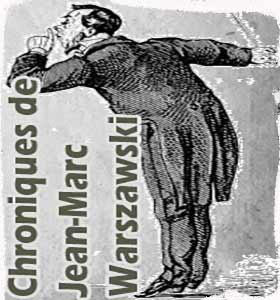
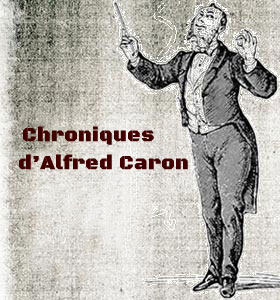
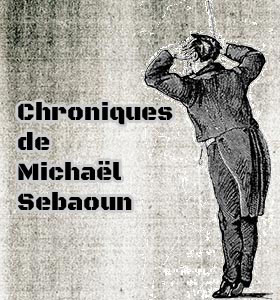
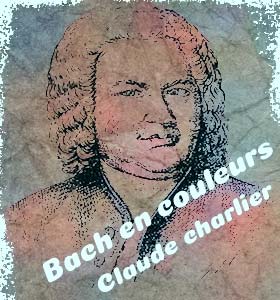
Bibliographie
Études
- CLARKE HENRY LELAND, John Blow (1649-1708), Last Composer of an Era (thèse). Har-vard University 1947 [4 v. 860 p.]
- CUMMINGS WILLIAM HAYMANN (1831-1915), Doctor John Blow. Dans «Sammelbände der Internationalen Musikgesellschaft» (10) 1908-1909
- DENT EDWARD JOSEPH (1876-1957), Foundations of English Opera, a study of musical drana in England during the seventeenth century, Cambridge, University Press 1928; New York, Da Capo Press 1965 [xv-xi-241 p., mus., introd., par Michael M. Winesanker]
- KING DEBORAH SIMPKIN, The Full Anthems and Services of John Blow and the Question of an English stile antico (thèse). University of North Texas, 1990 [xix-397 p., tables, mus., transcr., dir. Cecil A. Adkins]
- SHAW HAROLD WATKINS, John Blow's Anthems. Dans «Music and Letters» (24) 1938
- –, The secular Music of John Blow. Dans «Proceeding of the Music Association» (63) 1936
- –, Tradition and Convention in John Blow's Harmony. Dans Arnold Franck Thomas, «The art of Accompaniement», London 1931 et 1961
- –, John Blow doctor of music. London 1937
- TARRANT FREDRICK ALLEN, The Verse Anthems with Solo Organ Accompaniment by John Blow: The Continuance and Survival of English Sacred Music During the Late Stuart Monarchy (thèse). Indiana University [dir., George Buelow]
Lexicographie
- ABERT HERMANN (1871-1927), Illustriertes Musik-Lexikon. Stuttgart, J. Engelhorn Nachf. 1927
- ALLIBONE SAMUD AUSTIN, A critical dictionary of English literature and British and American authors [5 v.]. Philadelphia, Childs and Peterson 1859-1891; Detroit, Gale Research Com¬pany 1966
- AMICO SILVIO D' (1878-1955, fondateur), Enciclopedia dello spettacolo. Roma, Le Maschere 1954 [index: Roma, Unione editoriale 1968]
- BERTHELOT ANDRÉ (1862-1838), DERENBOURG HARTWIG (1844-1908) et al., La grande encyclopédie. Paris, H. Lamirault 1885-1901; Fromann, Bad Cannstatt 1966
- BLUME FRIEDRICH (1893-1975, dir.), Die Musik in Geschichte und Gegenwart [16 v., index]. Bärenreiter Verlag, Kassel 1946-1986
- CHORON ALEXANDRE-ÉTIENNE (1771-1834), Dictionnaire historique des musiciens artistes et amateurs. Paris, Valade et Lenormand 1810-1811 [2 v.]; Hildesheim, G. Olms 1971
- EITNER ROBERT (1832-1905), Biographisch-Bibliographisches Quellen-Lexikon der Musiker und Musikgelehrten. Leipzig 1900-1904 [10 v.]; New York, 1947 [10 v.]; Graz, Aka-demische Druck- u. Verlagsanstalt 1959 [11 v.]
- Enciclopedia universal ilustrada europeo-americana [70 v.]. Madrid, Espasa-Calpe 1907-1930
- EVANS EDWARD (1789-1835), Catalogue of a collection of engraved portraits the largest ever submitted to the public. E. Evans, London 1836; Catalogue of engraved portraits comprising thirty thousand portraits connected with the history and literature of Great Britain. E. Evans, London 1853
- FÉTIS FRANÇOIS JOSEPH (1784-1871), Biographie universelle des musiciens [8 v.]. Firmin-Didot, Paris 1873-1889 [2e éd.]; Bruxelles, Culture et Civilisation 1972 [25 cm]
- GATTI GUIDO MAGGIORINO (1892-1973) & BASSO ALBERTO (*1931, dir.), La musica [6 v.]. Torino, Unione tipografico 1966-1971
- HOEFER JEAN-CHRÉTIEN FERDINAND (1811-1878, dir.), Nouvelle biographie générale (universelle) [46 v.]. Paris, Firmin-Didot 1853-1866; Rosenkilde og Bagger, Cøbenhavn 1963-1969
- JÖCHER CHRISTIAN GOTTLIEB (1694-1758), Allgemeines Gelehrten-Lexicon. Leipzig 1750-1819; 1897; Hildesheim, Olms 1960; 1998
- LESLIE STEPHAN & SYDNEY LEE (éd.), National Biography. Smith, Elder & Co, London 1908
- SADIE STANLEY (*1930, dir.), The New Grove dictionary of music and musicians. Macmillan Publishers, London, New-York 1980 [20 v.]; 2001 [29 v.]
- MERSEBURGER CARL WILHELM (1816-1885, pseud.: Paul Franck), Kurtzgefasstes Ton-küns¬¬tler-Lexicon für Musiker und Freunde der Musik. Regensburg, Gustav Bosse 1936
- MICHAUD LOUIS-GABRIEL (1773-1858), Biographie universelle ancienne et moderne [45 v.]. Paris, A. Thoisnier, Déplaces & Michaud 1854-1865
- MICHEL FRANÇOIS (*1926), LESURE FRANÇOIS (1923-2001) & FÉDOROV VLADIMIR (1901-1979), Encyclopédie de la musique. Fasquelle, Paris 1958-1961
- O'DONOGHUE FREEMAN, Catalogue of engraved British portraits preserved in the departement of print and drawings in the British Museum. F. O' Donoghue and H. M. Hake 1908; 1922-1925
- PAUER E., A dictionary of pianists and composers for the pianoforte. Novello, Ewer and Co's Music Primers, London, New York 1895
- RICHES PHYLLIS M., An analytical bibliography. London, the Library Association 1934; Detroit, Gale Research Co. 1980
- RIEMANN HUGO (1849-1919), Musik-Lexikon. Mainz, London, New York, Paris, B. Schott's Söhne 1959-1967
- SCHMIDL CARLO (1859-1943), Dizionario universale dei musicisti. Milano, Ricordi 1887; Milano, Sonzogno 1928-1929 [sup. en 1938]
- SEEGER HORST, Musiklexikon. [2 v.]. Leipzig, Deutscher Verlag für Musik 1966; 1981
- ZELLER OTTO (éd.), Internationale Bibliographie der Zeitschriftenliteratur aus allen Gebieten des Wissens. Osnarbrück, Felix Dietrich 1975.
 À propos - contact |
S'abonner au bulletin
| Biographies de musiciens | Encyclopédie musicale | Articles et études | La petite bibliothèque | Analyses musicales | Nouveaux livres | Nouveaux disques | Agenda | Petites annonces | Téléchargements | Presse internationale | Colloques & conférences | Collaborations éditoriales | Soutenir musicologie.org.
À propos - contact |
S'abonner au bulletin
| Biographies de musiciens | Encyclopédie musicale | Articles et études | La petite bibliothèque | Analyses musicales | Nouveaux livres | Nouveaux disques | Agenda | Petites annonces | Téléchargements | Presse internationale | Colloques & conférences | Collaborations éditoriales | Soutenir musicologie.org.
Musicologie.org,56 rue de la Fédération, 93100 Montreuil. ☎ 06 06 61 73 41.
ISSN 2269-9910.
Dimanche 16 Novembre, 2025
